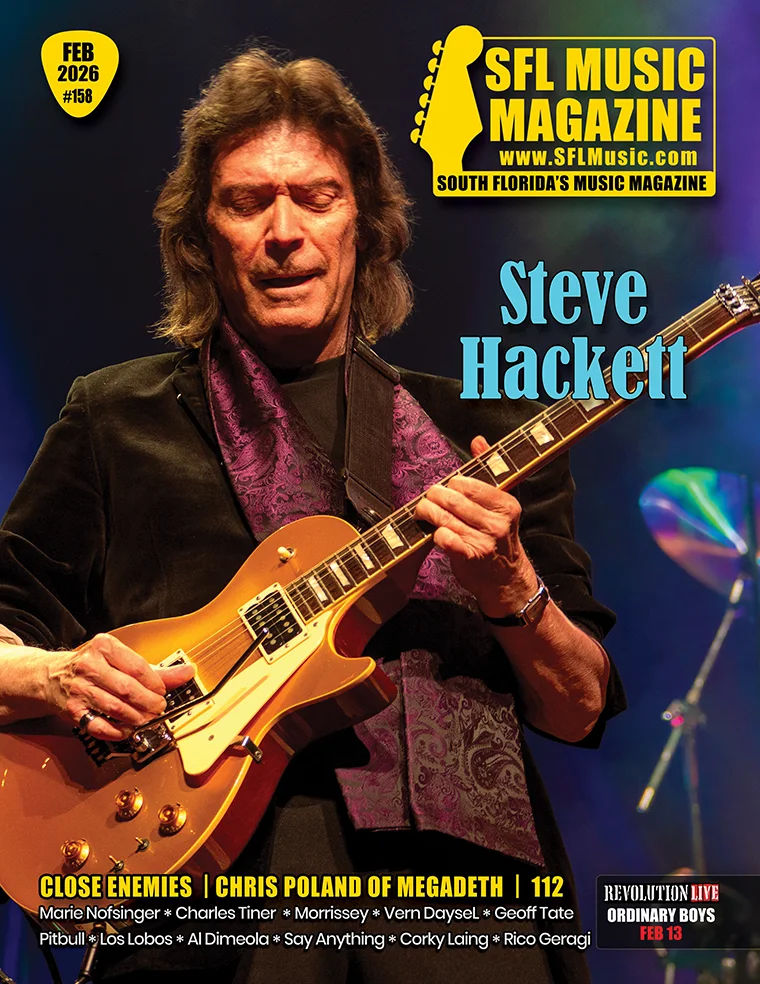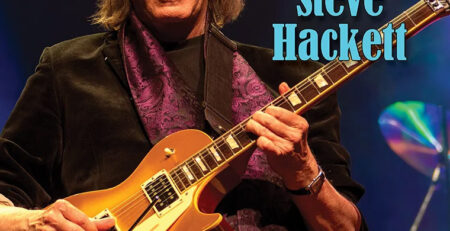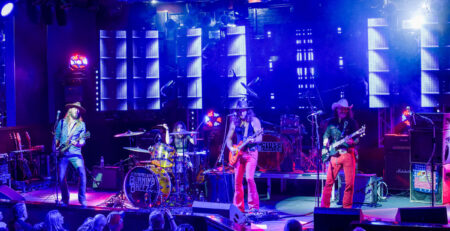 Brian Tarquin
Brian Tarquin
By: Lori Smerilson Carson
Living a life dedicated to music certainly has its rewards. Guitarist/Songwriter/Producer Brian Tarquin optimizes this concept and has now been nominated for his 7th and 8th Josie Music Awards for Guitarist of the Year and Label of the Year, recognizing his record label BHP Music-Guitar Trax. Throughout his thirty-year career he has received many accolades including three Emmy Awards. Tarquin has worked with several world-renown musicians, created an array of different genre hit songs and wrote a multitude of scores for films and television such as The Watcher, Godzilla, Sex and the City, Cheers and CSI.
Catching up with Tarquin in the midst of his busy schedule, he divulged some details about the awards, his studio and music, and what fans can look forward to.
SFL Music Magazine: Congratulations on your 7th and 8th nominations for the Josie Music Awards!
Brian Tarquin: Oh, thank you.
SFL Music Magazine: You’re welcome. I understand why you’re nominated for Guitarist of the Year, you’re an amazing musician, but you are also nominated for Label of the Year. The last time we spoke you talked about using analog and digital in your studio (Jungle Room Studios). Do you think that added to your label standing out or what do you think stood out about your label that you received this nomination?
Tarquin: I’m hoping that actually they hear the difference. Today with mainstream music and pop music, also AI at this point, and the computer. I think I’m probably one of the few remaining that concentrates on the kind of music that I do. Guitar, excentric music, and instrumental music. Unfortunately, there’s not a lot of instrumental music anymore. There used to be quite a lot, and now it’s not receiving everything I think, as it used to anyway because there’s no instrumental music channels. People kind of concentrate on the vocals today. So, I’m thinking that maybe that’s a good thing for me because I’m like out in the wilderness. You know, boys in the wilderness kind of speaking for those of us who still enjoy guitar music, guitar-oriented music, and instrumental music in a broader sense.
SFL Music Magazine: The awards are going to be held in Nashville at the Grand Ole Opry on November 2nd. How does this work? Is it open to the public to go?
Tarquin: I believe that there’s tickets that they have for it. It’s funny, I’ve never gone before. I guess just because I could never get the time to get to go and to do everything. So, it’s been always hard to go. I won a couple times and I’ve never even gone yet. Last year we won for BEYOND THE WARRIOR’S EYES as Best Instrumental Album. Then the year before was the video I did with Joe Satriani, won Best Video. I feel like I should be going here, so I’m going to try to go this year.
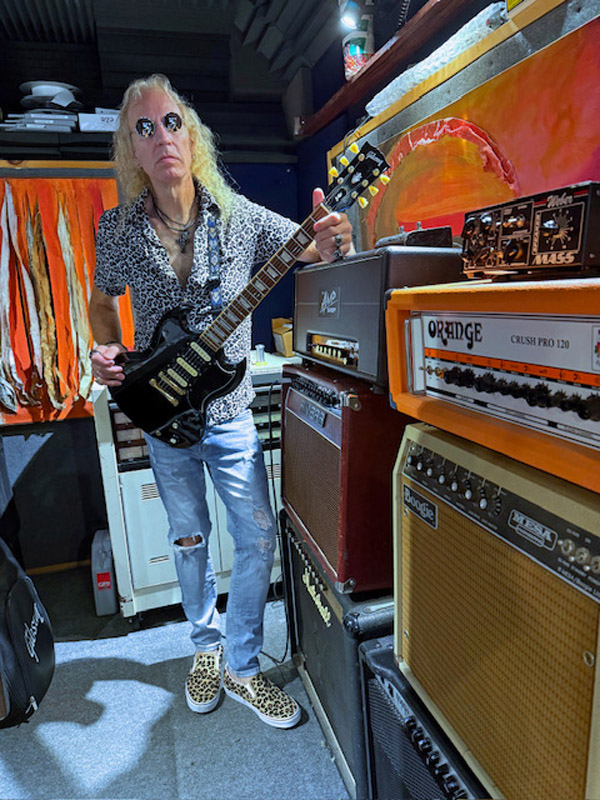 SFL Music Magazine: I read in your press release that you are working on a new album that will be released in 2026, Tyranny of Tone to benefit the California Fire Foundation. How did that all come about and what was the inspiration for the album?
SFL Music Magazine: I read in your press release that you are working on a new album that will be released in 2026, Tyranny of Tone to benefit the California Fire Foundation. How did that all come about and what was the inspiration for the album?
Tarquin: What I wound up doing was, I started the production on this record kind of the same time as the fires went, and I had some of the songs. I was working with Joe Satriani on a new track and Gus G from Ozzy (Osbourne), and so basically, what I thought was, this would be a great way to kind of bring awareness to the fires because I guess with our news the way it is, I think we’ve all become so attention deficit. It’s just we’re inundated by so much news every day. Some people tend to forget all this stuff very quickly. So, I wanted to be able to do something for the victims, and the people and the fire. There are so many first responders that were deployed for this whole thing. So, I thought doing the California Foundation for Fire would be good. They’re in Sacramento and they’re I think, a very well-known company. So, I really wanted to write something towards that. I started writing these different songs as I was watching the news, watching these flames, watching all these crazy things going on. I work with Hal Lindes on a track, from Dire Straits, and his daughter’s school was burned down in Pacific Palisades. It hit home to a lot of people that I know and so many people lost their houses. It kind of really came so fast and out of control for so long. I felt like wow, let’s do a track or an album that will just give awareness to everything. So, I started composing these tracks and recording, and I brought my drummer in, Reggie Pryor. We started doing these drum tracks, and then I started to basically develop all these songs that I had. I sent one to Joe Satriani, one to Gus G and then I wrote kind of a ballad-sh one and got Gary Hoey and Joe Deninzon. He’s a violinist from Kansas. I got him involved in it. So, it came out really nice. We were developing all this and had Hal Lindes on it as well. I just wanted to get musicians involved with it to show how much music can bring us together and kind of heal all of what went down in California, in some of the crazy images. They couldn’t get water. They ran out of water and had to use swimming pools to put out the fire in some of these homes. It’s crazy. It was just kind of a surreal moment. Friends were sending me pictures of these fires that were far out that you could see from the beach, but you could see right there from the beach and all this glow of red and orange in Santa Barbara and Pacific Palisades. Yeah, it was quite a moving event I think, and I felt like I wanted to kind of document it musically.
SFL Music Magazine: That is definitely something for people to look forward to. You’ve written music for several television shows and film scores, SNL, Godzilla, Seinfeld, Good Morning America. I could go on and on. Are there any other projects or anything new that you have been working on for people to know about?
Tarquin: Yeah. I’m working right now for Warner Bros. for various shows where I’m doing this kind of cool low fi, guitar low fi jazz stuff which is an interesting kind of hybrid mix of hip-hop grooves and jazz element overtones in it with guitar. So, I’m in the works on that, and I just finished, it’s actually a cool CD. I did this for First Choice Music which is under for television. It’s for APM Music which is a huge company in L.A. owned by Universal and Sony and basically, they do a lot of placement for music and television shows. A lot of sports, NFL and all of that. So, I did a thing called “Rock It Amadeus” and what it was is, it’s actually a cool remake of just old classical songs, but in a hard rock fashion. In a modern rock fashion. It’s a different take of classical music. I did it with Hal Lindes from Dire Straits. We did songs “Air On G” by Bach, and ”Carmen” by Bizet, “Ave Maria” by Schubert and “Canon” by Pachelbel. So, we did a whole bunch of familiar classical songs but in a kind of hard rock fashion.
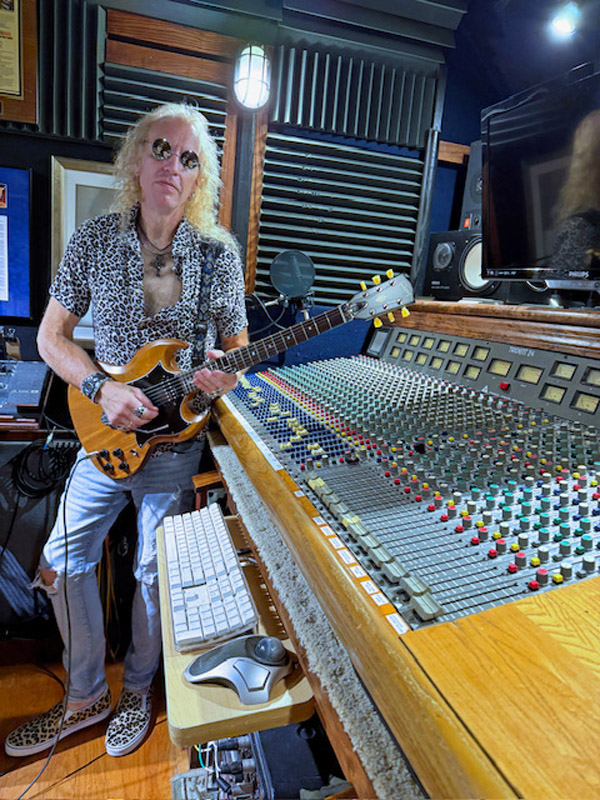 SFL Music Magazine: Last time I asked you what you would recommend to a new artist, and you said, “become a dentist”! Is there anything new that you would pass along? You talked about things being very different now.
SFL Music Magazine: Last time I asked you what you would recommend to a new artist, and you said, “become a dentist”! Is there anything new that you would pass along? You talked about things being very different now.
Tarquin: I think for a new artist, what the best thing to do is, to actually get to know the industry. I always thought anybody who wants to be an artist should work at a record company for like a year or a publishing company, just to see how everything flows. How much money flows because I notice that with AI, there’s a lot of new artists and they’re just like teenagers living in their parent’s house, and they have these programs that just copy their voice to whatever popular like Playboi Carti or somebody like that. Any kind of popular thing just to make money on the streams to pretend like that’s the way they sound kind of thing, but I would say, be true to yourself and true to your artistry. And know it’s not just kind of a money game because obviously, we all would have done something else if that was the case. But I think it’s, know where the royalties are and get to know what you’re entitled to. Like what kind of royalties, what are mechanicals. What are record royalties that I’m entitled to as an artist? Just kind of get to know the industry. Work at one of these places. Even any of the DSBs like Spotify or something, and see how the whole industry kind of works. Years ago, I wrote a book called THE INSIDER’S GUIDE TO MUSIC LICENSING and I go through that whole thing in the book of how you get paid, what are mechanicals, who is Harry Fox, the agency. As a new artist, I think you’d want to know that. I know, years ago as a new artist, I wanted to know that. Know how I’m supposed to get paid or what I’m doing because unfortunately, the artistry of it is a small portion compared to the business side of it, and understanding what royalties you get and how do I do it. How do I do all of this? A lot of guys kind of had a misunderstanding of it, like thinking that all I had to do was write a song, and then they just sit there and wait for the royalties to roll in somehow. If you’re Billy Joel, that will work that way, but as a new artist, you’re going to have to understand where it’s coming from.
SFL Music Magazine: The last time we spoke, we did speak about your book THE INSIDER’S GUIDE TO MUSIC LICENSING. Are there going to be any new books coming out soon or maybe in the future?
Tarquin: I’m thinking of doing an updated one. I had written another one, basically, it was kind of similar, but it was a guide for composers. It came out a few years ago after the Insider’s Guide. I was kind of thinking, maybe an updated version of that because I had done a GUITAR AMPLIFIER Encyclopedia and then THE INSIDER’S GUIDE TO HOME RECORDING, and then of course the guitar one, the GUITAR Encyclopedia. So, I was thinking maybe I should do an updated version, or an updated one because things have changed, even since I’ve written that book as well.
SFL Music Magazine: It seems to change all the time, doesn’t it?
Tarquin: It really does and for some reason, you kind of need an update on updates as you keep going on with this. I also have two books that have been unpublished or out of published or out of date for a while. One was RECORDING TECHNIQUES OF THE GUITAR MASTERS which I always wanted to bring that back to have that republished. The other one was the pedal book. It was called STOMP ON THIS! and it was the guitar pedals one. They were both originally on Cengage and they closed that part of their whole publishing side with music, but I wanted to bring that back because they were interesting takes of recording techniques. The other one was called SURVIVAL GUIDE FOR MUSIC COMPOSERS. That’s available still. All of these things, they become outdated, and then you have to redo them.
SFL Music Magazine: When you did BEYOND THE WARRIOR’S EYES you were working toward awareness to help veterans. Is there anything else new that you are doing besides the upcoming album?
Tarquin: Well, this is going to be for the California foundation for the fires. I’m still promoting the veterans. Always make people aware because I guess people aren’t too aware of all of that with veterans, but the new one is the California Fire Foundation.
SFL Music Magazine: Again, congratulations on your nomination.
Tarquin: Thank you. The one thing I like about the Josie Music Awards is that, even the Grammy’s have become like this. You have to actually pay for entrance, and then you actually have to pay for your award if you won. I thought, oh my God. That’s so brazen. It’s kind of embarrassing. Whereas the Josie Music Awards, they don’t do that. It’s free entry to anybody and if you win, you get the award. You don’t have to pay for anything. You’re just acknowledged. So many of these awards shows are all based on these huge fifty-dollar entry fees or sixty dollar entry fees, and then if you win you have to buy a plaque or a reward or something. It’s almost like you’re pay to play kind of.

